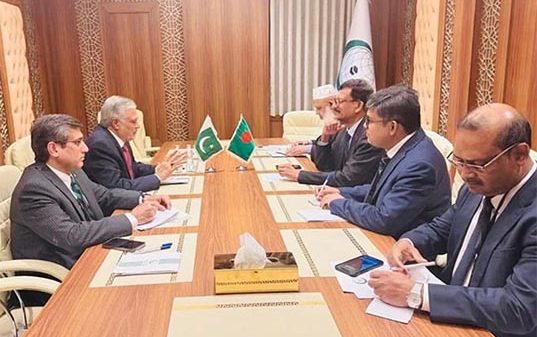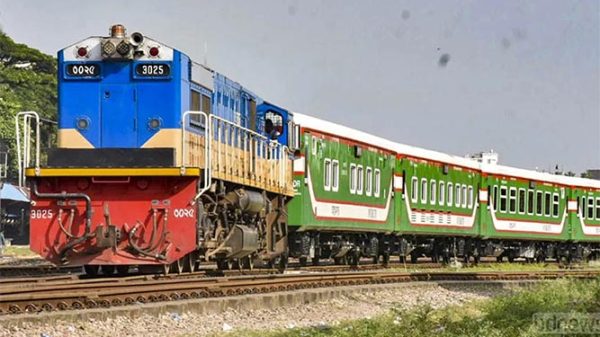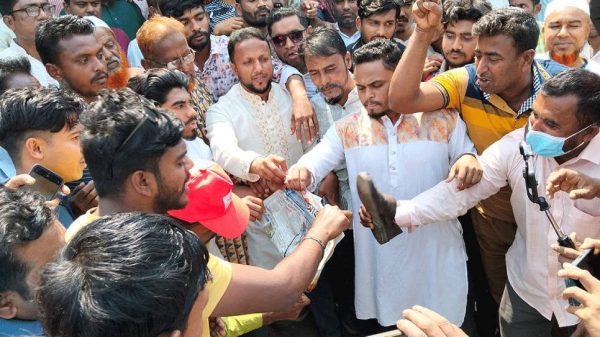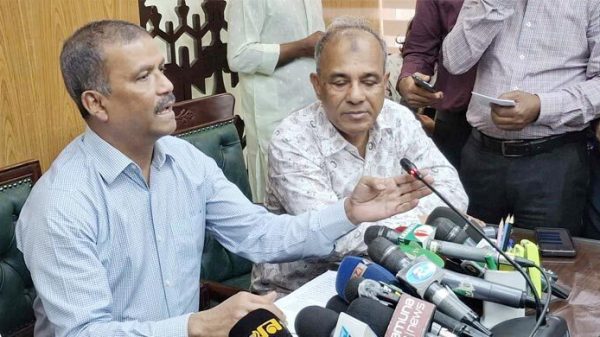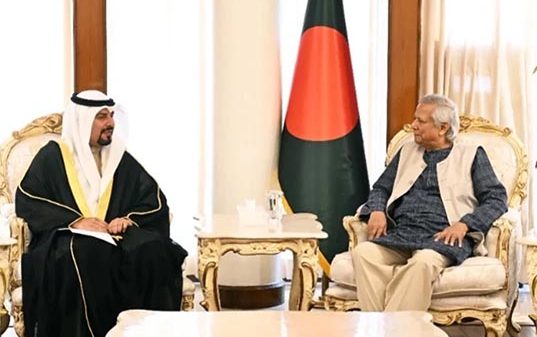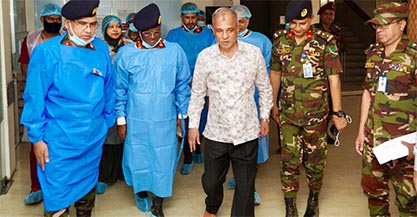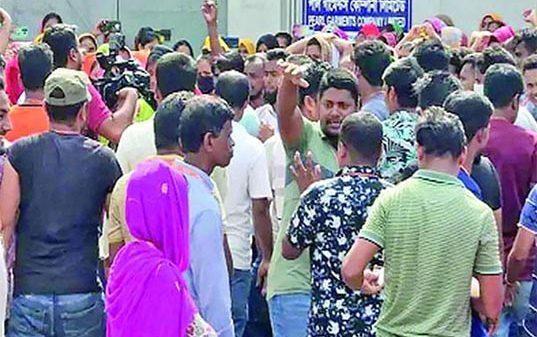China starts two days of military drills around Taiwan

- Update Time : Thursday, 23 May, 2024, 08:47 pm
- 88 Time View
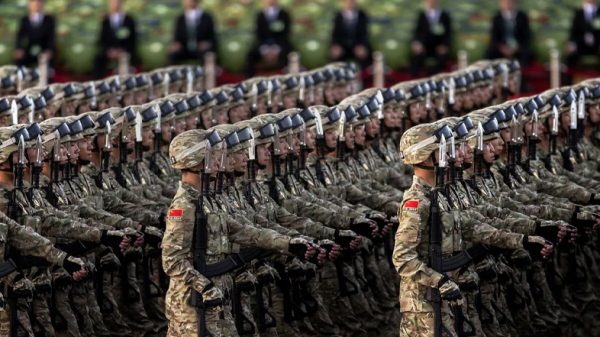
Online Desk :
China has started two days of military drills in the water and airspace around the self-governing island of Taiwan, according to Chinese state media.
The state-run Xinhua news agency said the Eastern Theatre Command of the People’s Liberation Army started the drills at 7:45am (23:45 GMT) on Thursday in the Taiwan Strait, the north, south and east of Taiwan, as well as areas around the islands of Kinmen, Matsu, Wuqiu and Dongyin.
Military spokesman Colonel Li Xi said the joint exercises involving the army, navy, air force, and rocket force were a “strong punishment for the separatist acts of ‘Taiwan independence’ forces and a stern warning against interference and provocation by external forces”, according to a post on China’s Weibo messaging platform.
The show of strength, code-named Joint Sword-2024A, comes three days after Taiwan’s new president, William Lai Ching-te, took his oath of office and called on Beijing to stop its “intimidation” of the island, which China claims as its own.
Beijing has not ruled out the use of force to achieve its goal of unification and has reacted angrily to the inauguration of Lai, a man whom it considers a “troublemaker” and a “separatist”.
Taiwan’s Ministry of Defence said it had placed its military on “high alert” in response to China’s drills, which it described as “irrational provocations and actions that disrupt regional peace and stability”.
Following the start of the exercises, Lai Ching-te said he will continue to defend the values of freedom and democracy in the face of “external” challenges and threats.
He added that as Commander in Chief, it was his “responsibility to protect the country”.
A spokesperson for Australian Foreign Minister Penny Wong also said Australia was concerned that China’s military operations risk causing an accident or escalating tensions.
“The risk of an accident, and potential escalation, is growing,” the spokesperson said. “Peace and stability in the Taiwan Strait is in all of our interests.”
Bonnie Glaser, managing director of the Indo-Pacific programme at the German Marshall Fund of the United States noted that Beijing’s response to Lai’s election victory in January had been relatively restrained.
“The PRC evidently decided to wait until he delivered his inaugural address and then determine their response,” she told Al Jazeera, referring to China by the initials of its formal name.
“It’s clear that Beijing strongly objects to what they view as an attempt to develop a comprehensive ‘Taiwan independence’ narrative with the goal of altering the nature of cross-strait relations. I expect that they will roll out a series of military, political, and economic measures over the coming weeks and months.”
In Lai’s first address to the public after taking his oath, he said that “the Republic of China, Taiwan, is a sovereign and independent nation with sovereignty resting in the people” and stressed that his government would make no concessions on its democracy and freedoms.
He called on Beijing to “stop its aggression against Taiwan” and strive to “maintain peace and stability in the Taiwan Strait and the region”.
‘Hegemonic nature’
The following day, Chinese Foreign Minister Wang Yi lashed out.
“The ugly acts of Lai Ching-te and others who betray the nation and their ancestors is disgraceful,” China’s Ministry of Foreign Affairs quoted Wang as saying at a foreign ministers meeting of the Shanghai Cooperation Organisation in Kazakhstan.
Nothing can stop China from achieving “reunification” and bringing Taiwan “back to the motherland”, he added. “All Taiwan independence separatists will be nailed to the pillar of shame in history.”
In an editorial on Wednesday, the state-run Global Times tabloid described Lai’s first speech as president as “vile behaviour” and claimed his speech was “filled with hostility and provocation, lies and deception”.
China has stepped up military activities around the island ever since Tsai Ing-wen, Lai’s predecessor and also a member of the Democratic Progressive Party (DPP), was elected for her first term as president in 2016. It has often taken more aggressive measures when Taiwan officials meet politicians from the United States, a key Taiwan ally, and conducted unprecedented series of war games after then US House Speaker Nancy Pelosi visited the island in August 2022.
Taiwan’s ministry of defence said such actions had caused “substantial harm to global peace and stability”.
It added that the latest military exercises were being carried out “under false pretenses” and highlighted China’s “hegemonic nature”.
Wen-ti Sung, a specialist in Taiwan and China and a non-resident fellow at the Atlantic Council’s Global China Hub, said there could be more to come.
“This round of military drills is code-named ‘Joint Sword-2024A’,” he noted. “The suffix ‘A’ suggests there may be future rounds B, and possibly C. Beijing is showing muscle in the immediate wake of Lai’s presidential inauguration to unmistakably signal Beijing’s displeasure. But this is the ‘signal’. The real ‘punishment’ is yet to come.”
China sees the DPP as “separatists” bent on independence. Tsai and Lai, whose victory marked an historic third term for the DPP, say the people of Taiwan should be the ones to choose their future.

